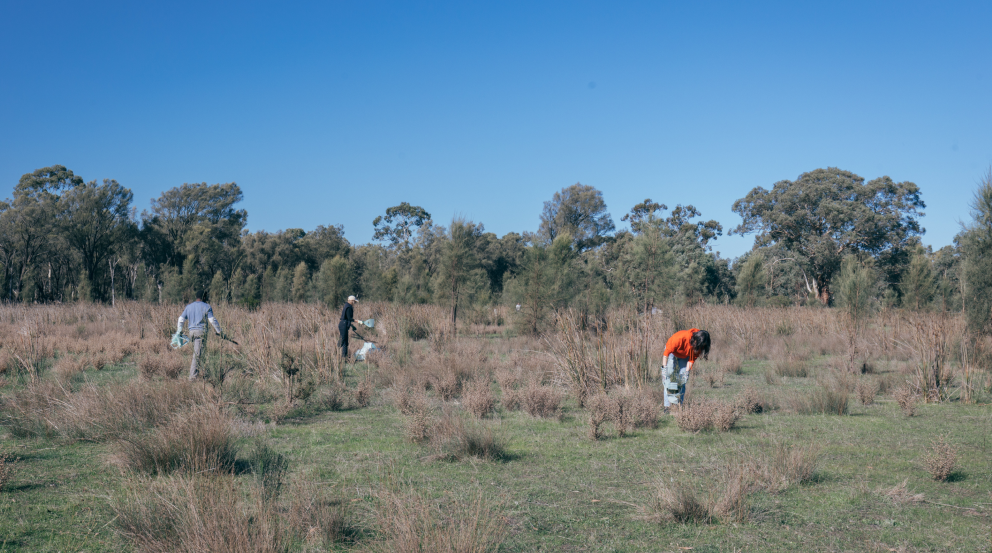A Bank Australia Community Customer Grant helps Her Kitchen Table to support women who are new migrants to Australia or from refugee backgrounds to turn their passion into a profession. Here’s how it works.
Ever tried nángbĭng, a flatbread made by the Uyghur people? What about puta, a Bhutanese buckwheat noodle dish? Or ‘otai, a Tongan watermelon drink just perfect for hot summer nights?
Canberrans can now order these culinary creations and more via a new social enterprise created with community in mind. Co-founded by Nazia Ahmed, Her Kitchen Table was born from a workshop run by The Social Outcomes Lab in collaboration with Initiatives for Women in Need, a volunteer-led organisation based in the ACT.
.webp)
Becoming financially independent is challenging for women who are new migrants or from refugee backgrounds. Although one in three small businesses in Australia are run by migrants or refugees, culturally and linguistically diverse (CALD) women face many barriers to workforce participation and business ownership.
“Even though they might have qualifications and work experience, it’s quite difficult to get certified to work in Australia,” explains Shadab Parvez, COO of Social Outcomes Lab. “Also, some women find it difficult for linguistic and cultural reasons.”
Her Kitchen Table helps women from diverse backgrounds to meet at a central point and cook together for Canberrans who pre-order their meals for pickup or delivery. “Food is the quickest and easiest way to connect with the local community. We all need to eat, right?” says Shadab, who adds that while the Canberra food scene is sophisticated, people still crave home-style cooking.
.webp)
A 2021 Bank Australia Community Customer Grant helped the social enterprise get off the ground. “We are so appreciative of the grant from Bank Australia,” says Shadab. “It was a godsend. It enabled us to hire more staff and cover website costs.”
With 25 meal artists cooking for Her Kitchen Table, the social enterprise currently has 300-plus diners registered on the platform. Diners can order a range of cuisines from Afghanistan, Brazil, the Philippines, Bangladesh, Bhutan and beyond.
.webp)
After an induction session in August, a group of women completed their first group cook-up in November. The social element of cooking together is an important part of the scheme. It’s not just about gaining an income stream, but also acquiring new skills, confidence, and connections.
“Some of our meal artists have their masters and PhDs,” says Shadab. “Others are new migrants from refugee backgrounds. The diversity is phenomenal. It’s great to see the connections happening between them.”
Sakina Husseini moved to Australia in 2019 and recently joined Her Kitchen Table as a meal artist. She was unable to work outside of her home when living in Afghanistan but the mother-of-three now studies English and works part-time at a café. Cooking kabuli pulao (a fragrant pilaf that’s the national dish of Afghanistan) is a new way for Sakina to share her culture with Canberrans. “Her Kitchen Table is a super awesome opportunity for me to share my traditional Afghani food,” says Sakina. “It's a source of income as well as a great environment to make new friends from diverse backgrounds.”
.webp)
The meal artists complete a food handling course before joining group cook-ups in the commercial kitchen. A chef also provides supervision and mentorship. So far, the service has been extremely well received. “It’s about discovery,” adds Shadab. “People are looking to explore and connect with people from diverse backgrounds through food. They’re willing to try new dishes for the first time because they want to go on that journey of finding out more about the food.”
With Her Kitchen Table up and running in Canberra, the team are looking towards the future with hopes of launching in other cities and offering event catering.
“Her Kitchen Table enables people to do what they’re good at and connect with other people through food. Once you taste the food, that breaks down so many barriers and assumptions about a person’s background. That’s where the magic happens,” says Shadab.
Find out more about our Community Customer Grants.
.webp)







